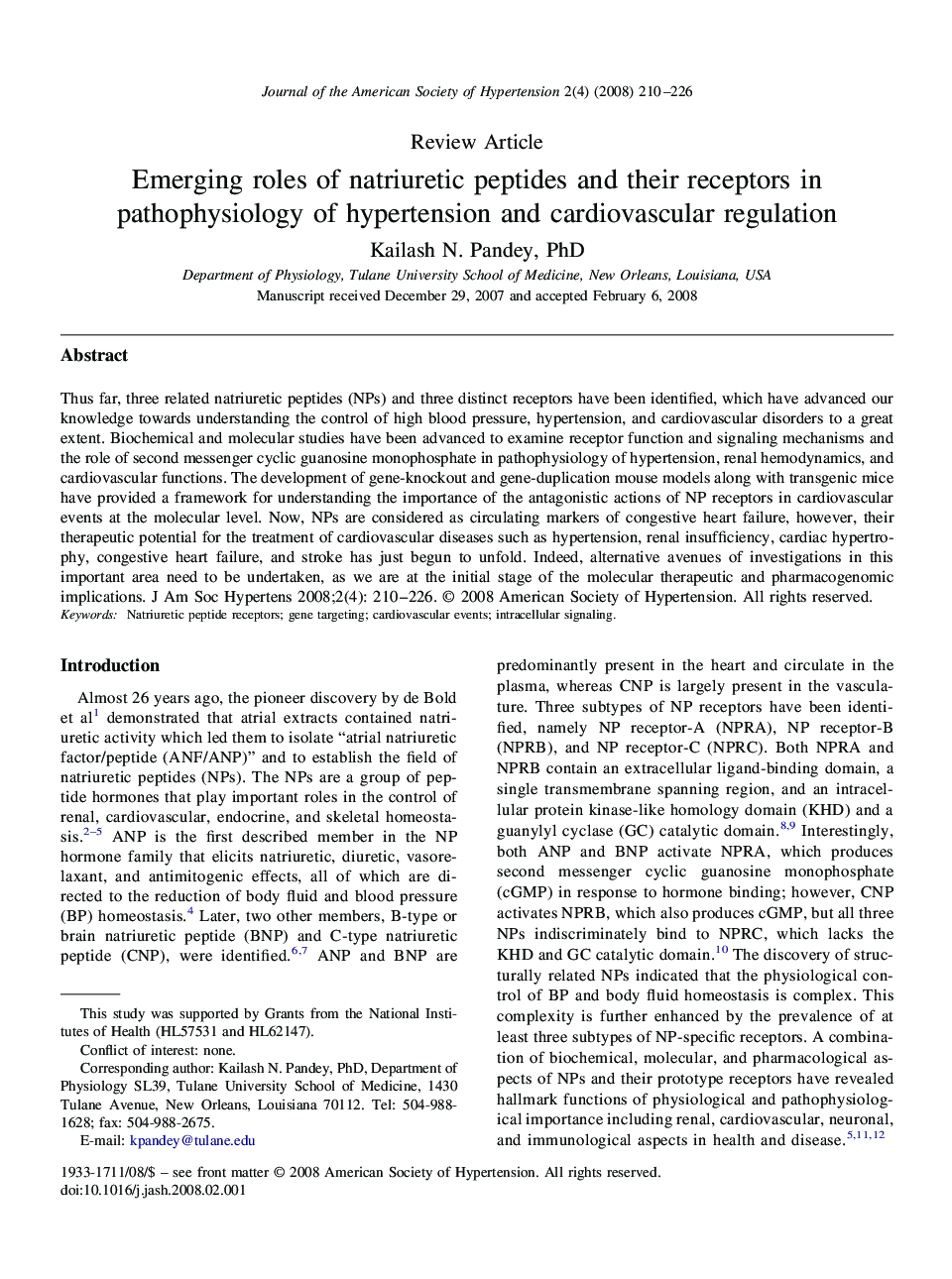| Article ID | Journal | Published Year | Pages | File Type |
|---|---|---|---|---|
| 2957448 | Journal of the American Society of Hypertension | 2008 | 17 Pages |
Thus far, three related natriuretic peptides (NPs) and three distinct receptors have been identified, which have advanced our knowledge towards understanding the control of high blood pressure, hypertension, and cardiovascular disorders to a great extent. Biochemical and molecular studies have been advanced to examine receptor function and signaling mechanisms and the role of second messenger cyclic guanosine monophosphate in pathophysiology of hypertension, renal hemodynamics, and cardiovascular functions. The development of gene-knockout and gene-duplication mouse models along with transgenic mice have provided a framework for understanding the importance of the antagonistic actions of NP receptors in cardiovascular events at the molecular level. Now, NPs are considered as circulating markers of congestive heart failure, however, their therapeutic potential for the treatment of cardiovascular diseases such as hypertension, renal insufficiency, cardiac hypertrophy, congestive heart failure, and stroke has just begun to unfold. Indeed, alternative avenues of investigations in this important area need to be undertaken, as we are at the initial stage of the molecular therapeutic and pharmacogenomic implications.
